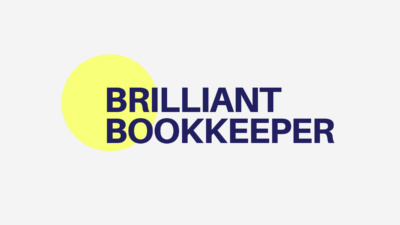Freelancing, no matter the industry, can change your life tremendously. Not only will you be your own boss, but you dictate how much money you make, how hard you work, and what decisions you make.
I speak from experience when I say it’s life-changing. While I’m not a freelance web developer, I’ve seen hundreds of people turn their web development skills into a successful business thanks to the pandemic and how most people do business now (online).

If you’re toying around with the idea of becoming a freelance website developer, check out this guide on how to get started.
Table of Contents
What Does it Mean to Freelance?
First, it’s important to understand what it means to freelance. When I started out, I took a gigantic leap. It worked well for me, and it can for you too.
Here’s what to expect.
When you freelance, you don’t have an employer. Instead, you work for yourself and find all the work yourself. That sounds scary, I know. But it also means you decide where and when you’ll work, how much you’ll charge, and even when you’ll take a nice, long vacation.
You don’t have anyone to answer to anyone except Uncle Sam. He’ll want his share of your taxes, which by the way, means you’ll pay both sides of the FICA tax since you are the employer and the employee.
It sounds complicated, but once you start, you’ll likely wonder why you didn’t do it sooner.
What Are the Benefits of Becoming a Freelance Web Developer?
Like any job or business, there are plenty of benefits to becoming a freelance web developer. I’ve already touched on the flexibility of the job and how much more freedom you’ll have, but let’s look at more technical reasons.
Use your skills the way you want
When you work for a company, you’re stuck in that position. You can’t branch out and try new things or even make more money. You stay in the same position until your next review or the next time there’s an opportunity for advancement.
When you work for yourself, you can branch out as much as you want. Maybe you found a niche you love that isn’t supported where you work now, but you would love to explore. As a freelancer, you can make those decisions.
Provide immense value to other business owners
When you work for one company, you’re stuck with their rules, regulations, and their reach on the world. Freelancing could give you that outlet if you think you have more to offer the world and other businesses. You can help other businesses start, grow, and achieve goals beyond their wildest dreams.
Earnings potential is endless
When you don’t work for someone, you can work as much or as little as you want. However, as you gain experience, you may find that you can increase your rates and make much more than you ever made working in the corporate world.
You can diversify
When you work for yourself, you can do as many jobs as you want. If you don’t want to put all your eggs in one basket, you may start a couple of freelance developer businesses each serving a different niche.
Are There Any Downsides?
Of course, with any business or investment, there are downsides you should consider:
- Must be organized: Because you don’t have an employer telling you what to do, you must be organized. You are the owner, accountant, bookkeeper, web developer, marketer, and any other position your company requires. You must be great at time management skills, or you could fail.
- A lot of competition: After the pandemic, millions of people went off to do their own thing rather than relying on an employer. Since millions of people are into web development, you must find a way to stand out from the crowd or differentiate yourself, or you’ll get lost in a sea of others.
- Trial and error to find the right price: You may find it hard to price your services. You’ll find plenty of freelancers out there who sell themselves short, giving away their services. This can bring down the value of what freelance web developers offer, forcing you to ask less for your services.
Before you find the sweet spot between charging what clients want and what you think you’re worth, it can take some time.
What Skills Do You Need to Become a Self-Employed Web Designer?
To be a self-employed web designer, you need both web development skills and business skills. It’s not enough to be a web development expert. You must know how to run a successful business because, at first, it will likely be you running the whole show.
Coding
You must know to code, but to what extent is up to you. Decide what niche you’ll serve. Will you use CMS sides like WordPress to create sites, or will you use your HTML, CSS, and Javascript experience?
You can always start with the basics and move your way up, expanding your services as you gain more traction.
Business skills
Remember, you’re the jack-of-all-trades when you are a freelancer. You’ll look for clients, handle accounts payable and receivable, do the invoicing, market your services, set up your website (this should be easy), and decide how to run your business.
It’s easy to burn the candle at both ends, so don’t bite off more than you can chew. Start slow, get your feet wet, and then slowly expand. Make sure you have a good handle on the business side of things and if you don’t, bring in someone who can.
6 Steps to Become a Freelance Web Developer
If you’re ready to become a freelance web developer and show the world what you have to offer, use these steps.
1. Get the right education
If you don’t already have the skills, certifications, or knowledge to do web designing freelance work, take the courses. Get as familiar as you can with every aspect of the services you want to offer.
2. Choose a niche
Don’t offer general web development services. Choose a niche. The more you specialize, the easier it is to advertise to your target market. Let people get to know you as the expert in the niche you offer.
It’s just like when you hire a real estate agent to sell your home. You wouldn’t hire an agent who specializes in $1 million homes if you’re selling a $250,000 home, right? Everyone has their specialty. It’s how you get more business and really hone your skills.
3. Create a portfolio
You need something to show potential clients to give them a reason to hire you. Your own website should showcase other work you’ve done, whether for free or pay. The goal is to show others what you can do. It may even give them ideas about what they want for their website.
If you have any client testimonials, make sure to include them too. Business owners like to hear from “real people” what they think of your services.
4. Choose your pricing
This can be one of the hardest parts of becoming a freelance web developer. The pricing needs to make it worth your while but also remain competitive within the industry.
Do your research and see what others charge. Compare it to the services you’d offer. Do they offer more or less than what you plan to offer clients? Are you happy with their pricing, or do you think there is room for more?
It’s a good idea to have multiple pricing tiers. Offer a basic or no-frills package, one level up, and then the granddaddy of all packages. This leaves room for upselling and helps potential clients see the value in the larger packages.
5. Market yourself
To market yourself, you need a brand. Show potential clients what you stand for and what you offer.
When they see your logo and basic information, it should be clear from the start what you offer. Your best bet is to market both online and offline.
Create a social media profile for yourself, get on LinkedIn, and join local networking groups. As a web developer, you can help companies worldwide, but don’t overlook the value of your local community too.
Become the expert everywhere. Offer free advice on your social media platforms, host seminars and classes, let everyone know you are the expert in the industry and offer value-added services.
6. Use freelance websites if you need to
If you aren’t getting any traction with private clients right away, lean on freelance platforms like Upstack or TopTotal. You can leverage the platform’s large audience and get the word out about your services.
As you build up more experience, you’ll be better able to branch off on your own and find your own freelance clients.
If numbers are your thing, bookkeeping is a profitable freelancing idea!
Build your very own virtual bookkeeping business from scratch using Bookkeeper Launch.
The Bottom Line
Consider a freelance web developer business if you’re looking for ways to make more money and possibly leave your 9 to 5 job. If you have a passion for web development, have the patience to run your own business, and have the desire to make unlimited money, then it could be the perfect opportunity for you.
FAQs
Every freelancer will make a different amount of money based on how hard they work and what they charge. On average, though, independent web developers make $60 to $80 per hour even if they don’t charge hourly. It’s what their charges work out to be.
Today, freelancing is huge. Millions of people are jumping on board because they know they can make more money than working for someone. Like with any job, though, you get out of it what you put into it. So yes, web development can be good for freelancing if you can handle the business side of things.
If you aren’t already skilled in web development, you could learn it in 5 to 6 months. It depends on where you take classes, how much time you put into them, and how quickly you catch on. Today there are hundreds of online class options to make it easy to get the education you need even while you work full-time.

